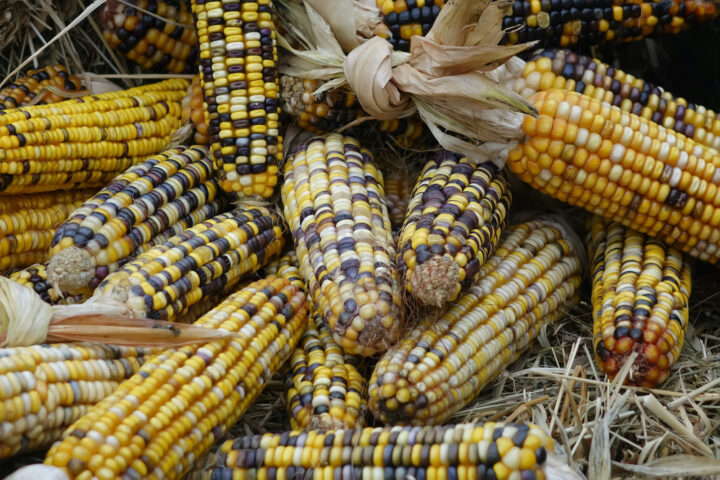
Science resists ban on GMO crops
The Supreme Court in the Philippines wants to stop the cultivation of genetically modified plants Golden Rice and Bt aubergine (Bacillus thuringiensis). This is anything but well received by the government and the scientific community: The ban could jeopardise the country's food security.
Monday, May 13, 2024
For two decades, the International Rice Research Institute (IRRI) has been working with PhilRice on the further development of Golden Rice, which was invented by Ingo Potrykus from ETH Zurich. However, the findings will now not be realised. The Supreme Court in the Philippines has put a stop to the cultivation of the genetically modified plants Golden Rice and Bt aubergine (Bacillus thuringiensis). This was reported by the Philippine portal inquirer.net, citing a court ruling from mid-April.
Scientists and academics are furious about the ban on the cultivation of genetically modified plants. The decision could have an impact on the country's food security. But that's not all: in their opinion, it would even cause «more harm than good». This is according to a statement from the Ministry of Agriculture and an advisory committee of experts. The government's legal team is currently even examining whether the court's order was legal.
Is the law being used to support an extremist ideology?
The National Academy of Science and Technology (NAST), which reports to the Department of Science and Technology (DOST), also expressed concern about the ban and found clear words in an official letter on Thursday: «If we did not interfere with nature through modern technology, we would not have achieved the quality of life we enjoy today», it said. The NAST therefore clearly supports the use of modern biotechnology in plant breeding.
The academy fears that the court ruling could «unnecessarily delay overdue innovations» and even goes one step further: it is feared that the Court of Appeal's judgement could lead to «the law being used as a weapon to support an extremist ideology of nature, namely that an unspoilt environment must be preserved and that modern biological technologies work against this goal.»
Harsh criticism of the precautionary principle
In its letter, the NAST also criticises a completely exaggerated precautionary principle. The precautionary principle is primarily applied in environmental and health policy and serves to prevent negative effects (e.g. of a technology). According to NAST, the requirement becomes a burden if the developers of a technology are required to prove the absence of harm. The precautionary principle becomes a blockade principle. If the requirement is to prove absolute freedom from all known and unknown risks, then the requirement exceeds the capabilities of the scientific method. «No technology is risk-free, [and] the most advanced societies are those that are willing to take risks», the report states.
Instead, the numerous benefits that GMO crops bring must be taken into account. For example, modern interventions in plant breeding have led to «improved varieties» of crops and other medical technologies such as vaccines and antibiotics.
With regard to Bt aubergines, according to NAST, more than 20 years of scientific evidence shows that they «significantly improve farmer income by reducing losses due to insect damage ... and can improve farmers' health by reducing their reliance on harmful chemical pesticides.» Insect pests in the core of aubergines pose a threat to food security in many regions. External treatment with insecticides is not suitable in this case.
Sources
Kindly note:
We, a non-native editorial team value clear and faultless communication. At times we have to prioritize speed over perfection, utilizing tools, that are still learning.
We are deepL sorry for any observed stylistic or spelling errors.
Related articles

Genetically modified plants contribute to the fight against global warming
The large-scale cultivation of genetically modified crops would counteract global warming. American and German researchers come to this conclusion in a study.

Genetically modified maize – a success story, even in skeptical Europe
Europeans are still resisting the cultivation of genetically modified crops – but this doesn’t mean they want to forgo the benefits of these products.

Genome Editing: Standards are being relaxed all over the world
Great Britain has already decided on its first steps, Switzerland has too: The handling of simple genome-edited plants is being made easier.

How our daily lives end up in the water
When residues in our waters are discussed, agriculture is often portrayed as the main culprit. Yet a closer look shows that the sources are diverse and often much closer to everyday life than assumed.

New Breeding Methods at a Crossroads
It will soon become clear whether plants developed through modern genomic breeding techniques will be allowed to be cultivated in European fields in the future. Switzerland in particular would be well advised to at least keep an eye on decisions made in Brussels in order not to fall behind.

Why Strict GMO Regulation Stifles Innovation
New breeding techniques such as CRISPR-Cas are considered key to developing resilient crops, stable yields and reducing the need for plant protection products. ETH professor Bruno Studer warns that overregulating these technologies strengthens precisely those large agricultural corporations that critics seek to curb, while excluding smaller breeders and start-ups from the market.

A Superfood with Benefits and Challenges
Sweet lupin is Biovision’s “Superfood of the Year 2026.” It delivers high protein content, improves soils and supports biodiversity. Yet a closer look at agricultural practice shows that without breeding, crop protection and innovation, even this superfood remains a challenging crop.

